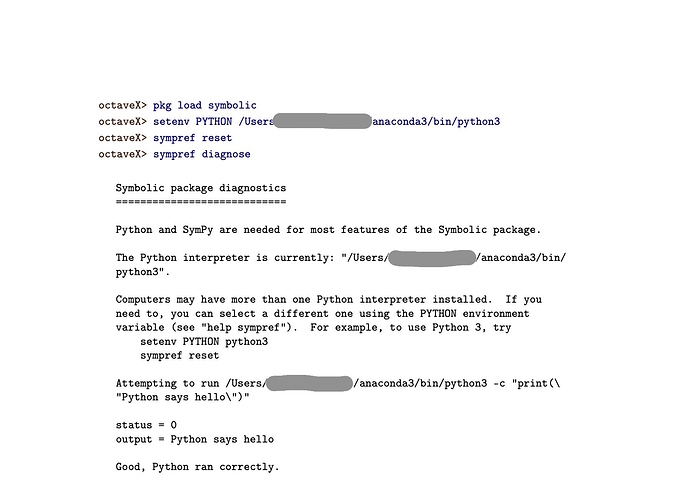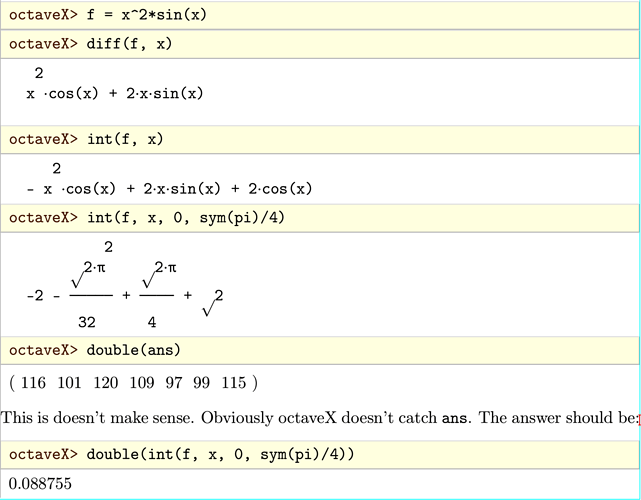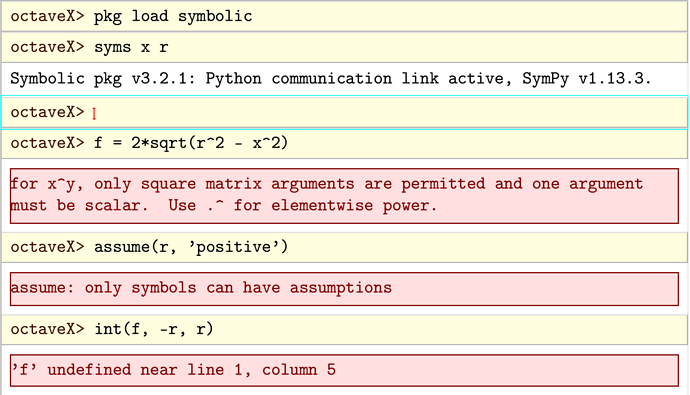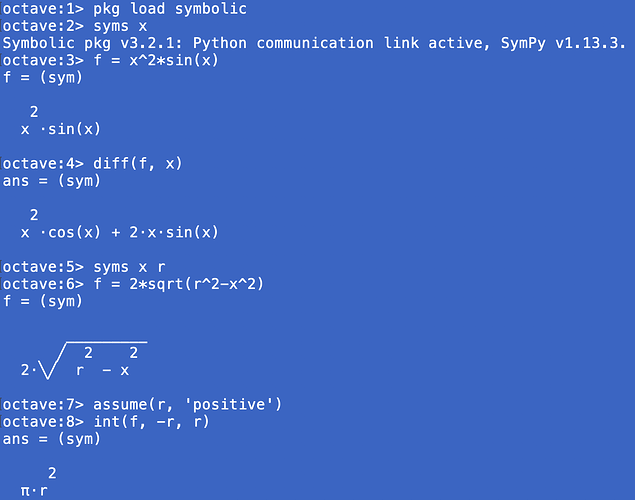I’m on TeXmacs 2.1.4 under OS X 15.7. The octave plugin works fine but there are some issues when I want to use octave’s symbolic pkg.
In an octave session I did
-
pkg load symbolic; -
sympref diagnose;
and all test passed successfully. Then I declaredxas a symbolic variable: -
syms x;
which correctly produced the following message -
Symbolic pkg v3.2.1: Python communication link active, SymPy v1.12.
and then I defined a function; -
f = x^3 + 3*x^2 - 10*x;
When I wanted octave to factor that expression -
factor(f)
I get this error message:error: sym/horzcat method failed error: called from pycall_sympy__ at line 179 column 7 sym at line 489 column 11 horzcat at line 64 column 17 flush_verbatim at line 13 column 3 tmdisp at line 17 column 5 tmrepl at line 71 column 7 /Users/tilda/.TeXmacs/plugins/octave/octave/tmstart.m at line 54 column 1
I wonder what is going on. All these commands run perfectly fine, both under octave-gui and octave-cli. Does anyone know how these issues in the octave plugin might be fixed?
Thanks in advance
Tilda




